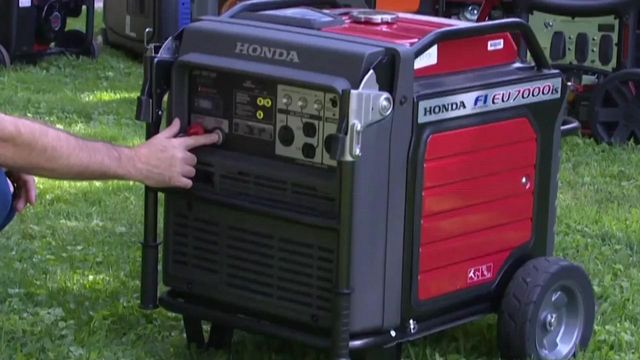Power outages: Follow these safety tips for generator use
When the power goes out, generators come on, but they come with serious risks such as carbon monoxide poisoning, electrical issues, and fire.
Posted — UpdatedWhen the power goes out, generators come on, but they come with serious risks such as carbon monoxide poisoning, electrical issues and fire.
Generators can help get essential electricity flowing again, especially during hurricane season. But before cranking one up, consumers should know it takes only minutes to pump out enough carbon monoxide to make you sick. Longer exposure can knock you out - even kill you. The gas of course is colorless and odorless.
Make sure your generator is outside - at least 20 feet away from your home with the exhaust pointed away.
Generators also come with electrical dangers. Many people don’t realize that the machines must be kept dry and need to be covered when it’s raining or snowing.
Another mistake people make is connecting a generator directly to a circuit box or trying to power the house wiring by plugging the machine directly into a wall outlet. Known as “backfeeding,” it can create an electrocution risk to utility workers and neighbors.
For those who have a generator just sitting in the garage, experts say the gas should be replaced every six months, and the machine won’t run properly if the gas is old. Generators also work best with a gas stabilizer and can use anywhere from eight to 22 gallons of gas per day.
When turning on the generator, make sure to use a heavy duty, outdoor power cord and let the generator run briefly before plugging in appliances. Appliances should also be plugged in one at a time, allowing each one time to power up and stabilize before plugging in another.
People without generators should not use charcoal or propane grills or heaters inside to heat the home. They can produce dangerous amounts of carbon monoxide.
Related Topics
• Credits
Copyright 2024 by Capitol Broadcasting Company. All rights reserved. This material may not be published, broadcast, rewritten or redistributed.






